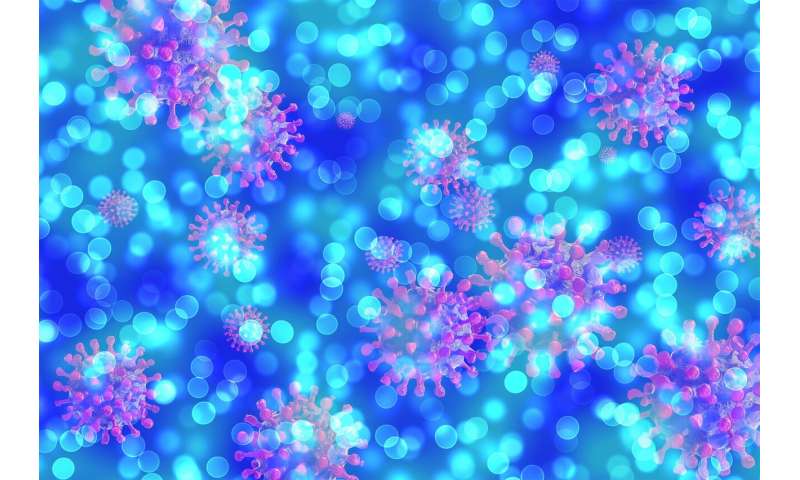
Researchers at Karolinska Institutet in Sweden report promising results from an in vitro combination therapy against COVID-19. In a study published in EMBO Molecular Medicine, the researchers show that a combination of remdesivir, an approved drug against COVID-19, and hrsACE2, a medicine currently in phase II trials for COVID-19 treatment, reduced the viral load of SARS-CoV-2 and inhibited viral replication in cell cultures and organoids.
Remdesivir, the only approved drug against COVID-19 disease, works by inhibiting an enzyme that prevents the virus from multiplying. In high doses, however, it can cause damage to the liver and the lungs.
Human recombinant soluble ACE2 (hrsACE2) is a genetically modified variant of the cell membrane protein angiotensin converting enzyme 2 (ACE2) that the coronavirus uses to enter our cells. Previous laboratory studies have shown that hrsACE2 lures the coronavirus to attach itself to the enzyme copy, hrsACE2, instead of to the actual cells, thereby reducing the viral load in cells.
In this study, the researchers tested combining remdesivir and hrsACE2 in cell cultures from monkeys, liver spheroids and 3-D kidney replicas, so-called organoids grown from human stem cells.
Dual effect
By combining these two substances, the researchers were able to achieve a dual effect: reduced viral load and reduced viral proliferation to nearby cells. In addition, they achieved this effect with comparably low doses of each substance, which lowered their toxicity and made them safer to use.
“By targeting different aspects of the viral cycle simultaneously, we may be able to increase the effectiveness of the treatment while reducing the risk for potential side-effects,” says Ali Mirazimi, corresponding author and adjunct professor in the Department of Laboratory Medicine, Karolinska Institutet. “Combination therapy is a model that has been used successfully in HIV therapeutics. So far, we have only tested our combination therapy in cell cultures and engineered tissues, but we hope that it can pave the way for clinical trials.”
Source: Read Full Article
